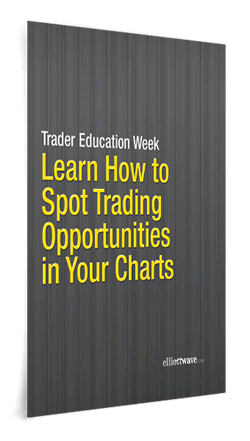The Three Phases of a Trader's Education
InvestorEducation / Learn to Trade Oct 04, 2013 - 10:03 AM GMTBy: EWI

 Senior Analyst Jeffrey Kennedy explains why traders need to understand both personal and crowd psychology
Senior Analyst Jeffrey Kennedy explains why traders need to understand both personal and crowd psychology
Jeffrey Kennedy, editor of our educational Elliott Wave
Junctures service, tells us that there are three phases
of a trader's education, and that aspiring traders typically
go through them in this order:
1. Methodology - The first phase is that all-too-familiar quest for the Holy Grail - that is, a trading system that never fails. After spending thousands of dollars on books, seminars and trading systems, the aspiring trader eventually realizes that no such system exists.
2. Money Management - Frustrated with wasting time and money, the up-and-coming trader begins to understand the need for money management, risking only a small percentage of a portfolio on a given trade versus making too large a bet.
3. Psychology - The third phase is realizing how important psychology is - not only personal psychology but also the psychology of crowds.
Yet, even after trading for 15 years -- and earning what he calls an expensive Ph.D. from S.H.K. University (School of Hard Knocks) -- Jeffrey had an aha moment:
"Aspiring traders should begin their journey at phase three and work backward."
Read more below to find out why he believes that psychology is so important.
AND, you can begin your trader education now to avoid further tuition fees from S.H.K. University. Get instant access to four free video lessons from Jeffrey -- and get a week's worth of additional lessons, October 2-9 -- when you sign up for our FREE Trader Education Week today >>
Jeffrey Kennedy on the importance of both personal and crowd psychology (excerpted from his Traders Classroom Collection):
I believe the first step in becoming a consistently successful trader is to understand how psychology plays out in your own make-up and in the way the crowd reacts to changes in the markets. A trader must realize that once he or she makes a trade, logic no longer applies, because the emotions of fear and greed take precedence: fear of losing money and greed for more money.
Once the aspiring trader understands this psychology, it's easier to understand why it's important to have a defined investment methodology and, more importantly, the discipline to follow it. New traders must realize that once they join a crowd, they lose their individuality. Worse yet, crowd psychology impairs their judgment, because crowds are wrong more often than not, typically selling at market bottoms and buying at market tops.
Moving onto phase two, after the aspiring trader understands a bit of psychology, he or she can focus on money management. Money management is an important subject and deserves much more than just a few sentences. Even so, there are two issues that I believe are critical to grasp: (1) risk in terms of individual trades and (2) risk as a percentage of account size.
When sizing up a trading opportunity, the rule-of-thumb I go by is 3:1. That is, if my risk on a given trading opportunity is $500, then the profit objective for that trade should equal $1,500, or more. With regard to risk as a percentage of account size, I'm more than comfortable using the same guidelines many professional money managers use: 1%-3% of the account per position. If your trading account is $100,000, then you should risk no more than $3,000 on a single position. Following this guideline not only helps to contain losses if one's trade decision is incorrect, but it also insures longevity. It's one thing to have a winning quarter; the real trick is to have a winning quarter next year and the year after.
When aspiring traders grasp the importance of psychology and money management, they should then move to phase three: determining their methodology, a defined and unwavering way of examining price action. I principally use the Wave Principle as my methodology. However, wave analysis certainly isn't the only way to view price action. One can choose candlestick charts, Dow Theory, cycles, etc. My best advice in this realm is that whatever you choose to use, it should be simple. In fact, it should be simple enough to put on the back of a business card, because, like an appliance, the fewer parts it has, the less likely it is to break down.
Announcing Trader Education Week: Learn How to Spot Trading Opportunities in Your Charts
|
Don't miss this chance to learn even more from Jeffrey Kennedy in a daily online video format, including:
Register now and get immediate access to four introductory resources >> |
This article was syndicated by Elliott Wave International and was originally published under the headline The 3 Phases of a Trader's Education. EWI is the world's largest market forecasting firm. Its staff of full-time analysts led by Chartered Market Technician Robert Prechter provides 24-hour-a-day market analysis to institutional and private investors around the world.
About the Publisher, Elliott Wave International
Founded in 1979 by Robert R. Prechter Jr., Elliott Wave International (EWI) is the world's largest market forecasting firm. Its staff of full-time analysts provides 24-hour-a-day market analysis to institutional and private investors around the world.
© 2005-2022 http://www.MarketOracle.co.uk - The Market Oracle is a FREE Daily Financial Markets Analysis & Forecasting online publication.



